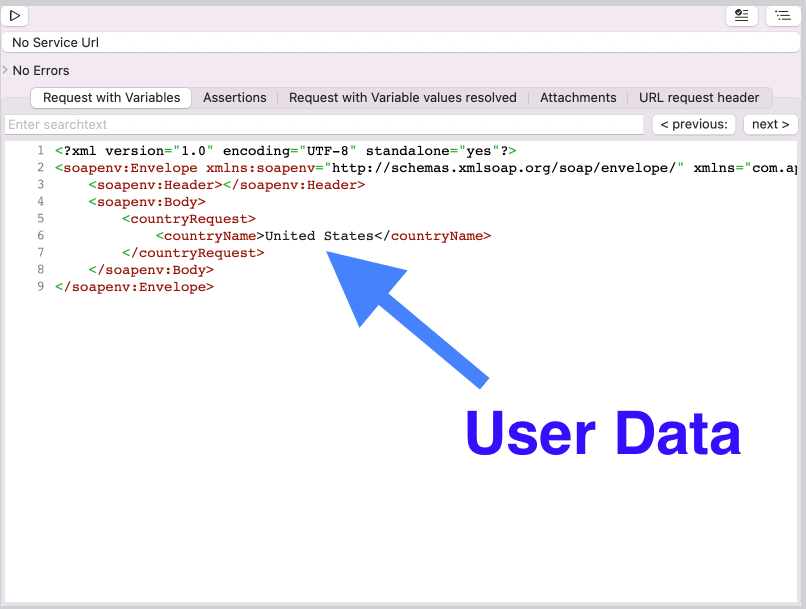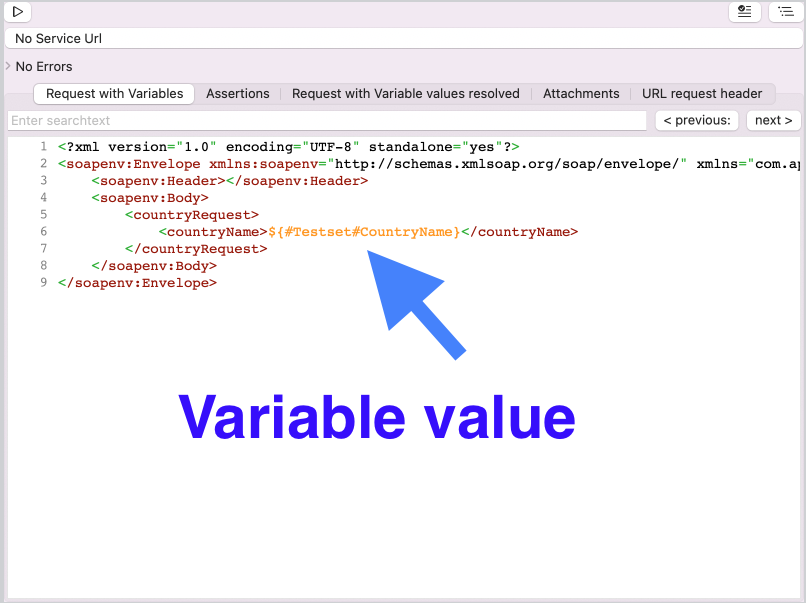Static and Variable test data
User data, response data, derived data and random data are available for your test
User data
The most common type of data is user data, ie data that the user enters. A user will enter request data in the request editor.

This approach is valid until request data are repeated for several tests and a change in the webservice definition, such as key lists or expected value, would mean a lot of rework. This is, where variables come into the game.

Response Data and Derived data
A Webservice is - in general - expected to return values, there may be negative test cases, though. You can access both - request and response data - from a teststep to feed a variable, as shown above, serves as input. APIJockey.com gives two options to to access request and response data:
- XPath
- XQuery
- JSONPath
In the request, derived data is just a variable as above. XQuery allows for arbitrary transformations of request and response data, so if you need to test several Web services that expect different contents, XQuery is your choice. XPath, XQuery and JSONPath can be used within DatatransferValueProviders, which in turn are part of Datatransferteststeps.
Random Data
APIJockey TEST provides a Randomteststep that allows for randomized data. You can create a list of random value providers without any coding. Typical examples are number plates or Vehicle Identification numbers where you may use a calculated String to create the random value. In the request, this is just a variable as above.